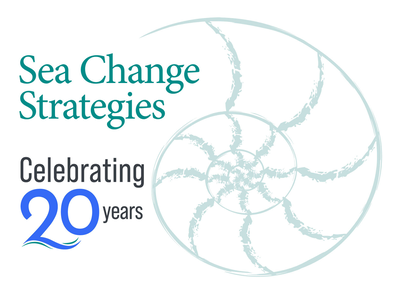Certainty is just an emotion
This is the second in a series based on Jennifer Garvey Berger’s Unlocking Leadership Mindtraps. Each mindtrap is a natural and innate biological tendency to think, feel or react in ways that once served us well as a species. Here is the first post in the series.
Quick show of hands: How many of you hate to lose an argument?
My hand is up. Yours?
You’re not always right but you may think you are. That’s not because you’re arrogant or a bad person. It’s because of your brain.
Here’s how Jennifer Garvey Berger puts it:
”Your sense of being right about something, the sparkling clarity of certainty, is not a thought process, not a reasoning process, but an emotion that has nothing to do with whether you are right or not.”
“It turns out,” she continues, “that we can’t tell the difference between our opinion and the truth, and that shapes what we notice—and how we treat other people.”
Certainty is just an emotion. And it’s one we crave because when we think we are right, our brain gets rewarded with a happy meal of neurochemical bliss. It works just like stories, the subject of the first post in this series..
In a complex world — and if you are a fundraiser, that’s you – that certainty is problematic. Remember two of defining characteristics of complexity are lack of predictability and lack of control. There is no cookbook, no recipe, no playbook for fundraising. If there ever was, that’s in the past.
This may be especially frustrating for fundraisers who suffer from the tendency of their non-fundraising companions to think they know more about fundraising than you do. It pains me to say it’s possible they’re on to something. When the past is no longer a predictor of the future, we need more voices and more perspectives.
‘While it feels good to be right,” Berger writes, “it actually shuts us down to some of our best human traits—openness, curiosity, wonder.”
Those are precisely the traits we need to navigate complexity.
And let’s bring in a bit of Brene Brown here. She reminds us that if feeling right is a neurochemical happy meal, then being made to feel wrong is more of neurochemical sludge bomb. You get triggered. And when you’re triggered you are far from your best self.
And even if you’re not completely triggered, our old friend confirmation bias is busy filtering from our consciousness anything that might contradict our certitude.
So what can you do to overcome this mindtrap?
Berger has a couple of powerful strategies here.
First, in any situation where you feel the need to be right, ask yourself a simple question: What do I believe and how could I be wrong? I’ve tried this out on myself and can report that it’s been a source of needed humility – and openness. Not all the time but working on it.
Her second strategy sounds simple but is actually quite hard: Listen to learn.
Writes Garvey, “Listening to learn requires that we hold off and try to deeply understand for a few minutes.” Even with the best of intentions, it’s likely that most of the time you are either listening to win (i.e. to be right) or you are listening to fix.
Getting the hang of listening to learn is one of the toughest and most rewarding things about training as a coach.
More on these three kinds of listening in a future post.
How does this all play out in a fundraising context?
Everything you think you know may or may not be right. Here’s an example. We always tell clients that bad news stories are way better in asks than good news stories. We say that because 99% of the time that’s what we’ve seen. But recently a client ignored our advice and sent an appeal loaded with good news. And it did quite well. No we didn’t test it, but now I want to.
However much you are testing, double it. And then double it again. What you learn may open up new avenues for building stronger and more lucrative relationships with donors.
And when the comms director comes into your office with an ‘out there’ idea, apply the two Berger strategies. You just might learn something new and useful.
None of this is to say you should cower in the corner or crumble with indecision. It just means when you find your competitive juices starting to flow in a debate or discussion, be mindful that your brain may be egging you on. And that there may be wisdom in the room that you’re not tapping.
Think about it. You often spout ‘truisms’ as if they were carved on a tablet. I know I do from time to time. Someone recently posted to a listserv that they have to abandon a client brochure ‘because the new CDO doesn’t like brochures.’ We used to have a client who rejected any food-related metaphors. Are these tested truths or personal biases masquerading as certainty?
So the next time you feel certain or right, remind yourself: That’s just an emotion.
Next up: the perils of going along to get along.
